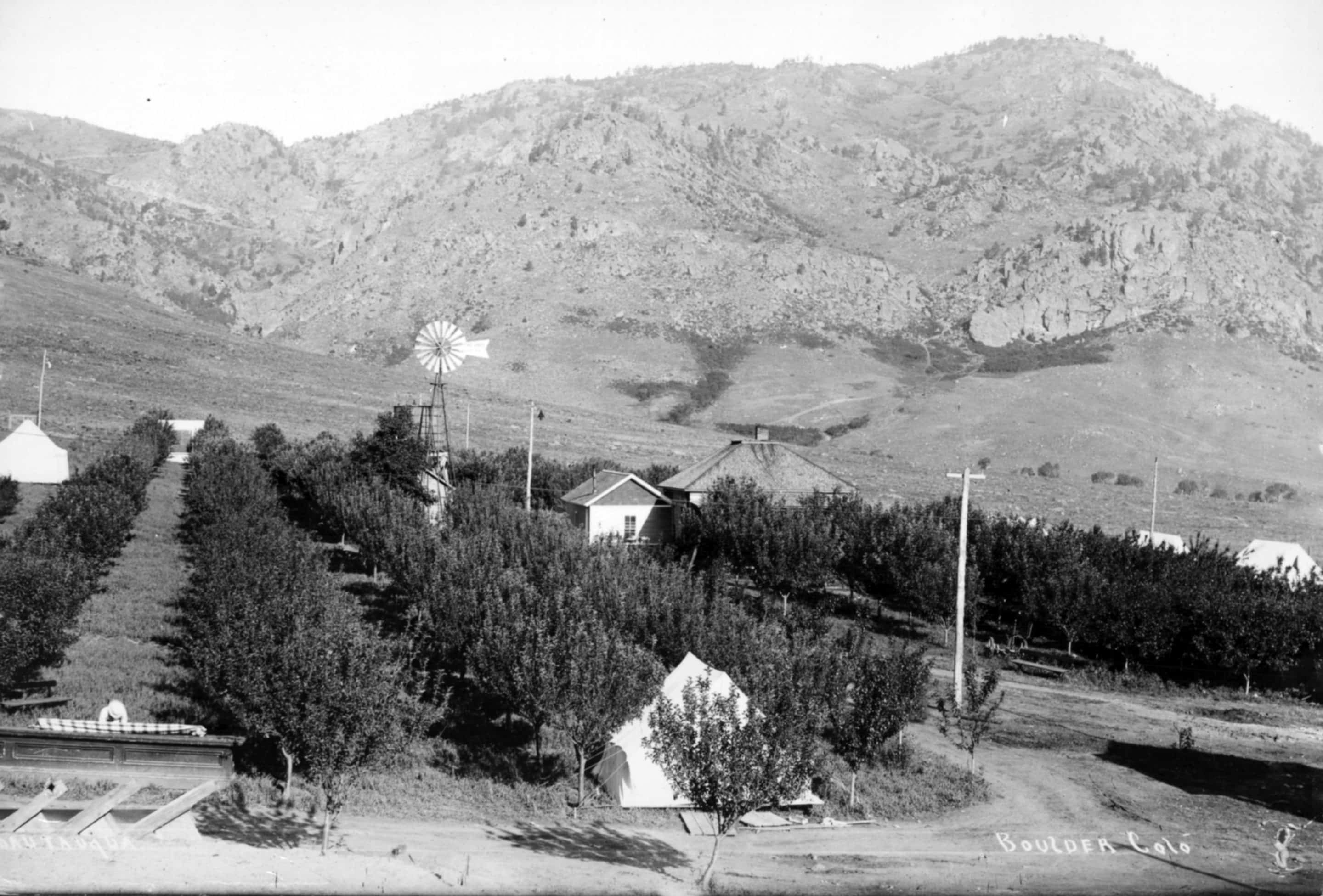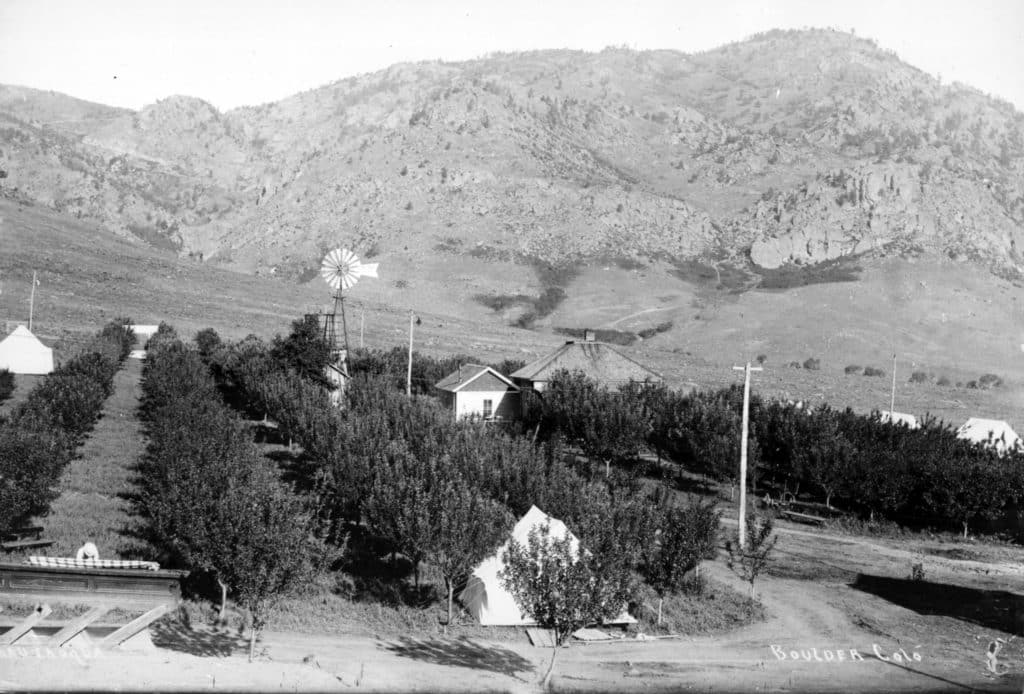From Apple Orchard to National Treasure
The oldest surviving structure at Chautauqua, built in 1882, Cottage # 200, is the Ranch House, aka the Superintendent’s House, the Stone Cottage, and the Keeper’s Dwelling, located by the windmill on the path that runs north-south between Community House and the General Store. It was the home of the Bachelder family, from whom the City of Boulder purchased the land for the Texas-Colorado Chautauqua in 1898 — the Bachelder Ranch.
Or was it the Batchelder Ranch? It’s spelled with a “t” in the original homestead records in 1892 granting George C. and Malvina Batchelder’s son, William W. Batchelder, an 80-acre homestead; the 1898 lease between the Texas Colorado Chautauqua and the City of Boulder; most of the records at Boulder’s Carnegie Library for Local History; and the seven Batchelder family grave markers at Boulder’s Columbia Cemetery. But it’s spelled without a “t” in all editions of Mary Galey’s The Grand Assembly, the CCA Newsletter, the Chautauqua Park Historic District Cultural Landscape Assessment Report (2004); and the National Historic Landmark Application (2006) and Supplement (2010).
Local historian Silvia Pettem says, “[I]t appears that Mary Galey spelled it wrong, and no one bothered to go back to primary source documents when they prepared the more recent documents in the following years.”
The Batchelders raised alfalfa and apples. An apple orchard surrounded the house and disappeared over the years as Chautauqua developed the property, but a few heirloom apple trees remain, mainly exploited by bears.
From 1882, when the Batchelder ranch was settled, a windmill-powered pump had moved drinking water from the reservoir on the south edge of the property, fed by a ditch from Bluebell Spring and the September Springs on the southeast side of the property, to the water tank just south of the ranch house. When the reservoir water became suspect, sometime before 1910, the windmill and tank were replaced by a hand pump to a new deep well. The water pump was the hip happening scene.
Fetching water from the pump was the children’s chore, but everyone congregated there. The 1921 Chautauqua Bulletin noted, “ . . .thousands of visitors from all parts of the country. They come to drink the pure water from the deep well but they stay to chat with friends and talk over the program of the night before, the lecture of the morning and the next social gathering in the Community House.”
In 1941 all Chautauqua buildings were connected to the new City water main. Despite efforts by the Cottagers Club to save it as a memento, the pump was moved to the top of Flagstaff Mountain and eventually destroyed by vandals.
The present windmill on the south side of the ranch house is a duplicate (not a reproduction) of the original windmill, manufactured in the 1940’s by The Airmotion company of Chicago, and moved here in 2020 from a farm in Kansas.
The house has had various uses. Chautauqua’s first season, 1898, the Ranch House served as office, mail room, and reception center. From 1903 through 1905, the City Directory for Boulder lists R. R. Lyman, Superintendent of Colorado Chautauqua Grounds, living in the stone cottage. From 1923 through 1945, it was occupied by Lura and John S. Mills, City of Boulder Parks Director. Chautauqua Park is a City of Boulder park, and the rent-free house was a perk for the Parks Director until 1949. After 1949, the Chautauqua Caretaker lived there year-round, Chautauqua paying the City $40 a month rent. Chautauqua purchased the house in 1998.
In 2013, the Chautauqua Archives were moved there, the house being the only building at Chautauqua not mainly wood. The archives contain approximately 5,000 items dating back to 1898. Holdings range from photographs and marketing materials to extensive documentation on buildings, grounds, programming, and organizational operations. The collection was inaccessible until 2014, when cataloging was completed. A portion of the collection has been digitized, and the rest will be digitized in 2023.
A sampling of historical photographs and printed materials is available on CCA’s website (chautauqua.com).


